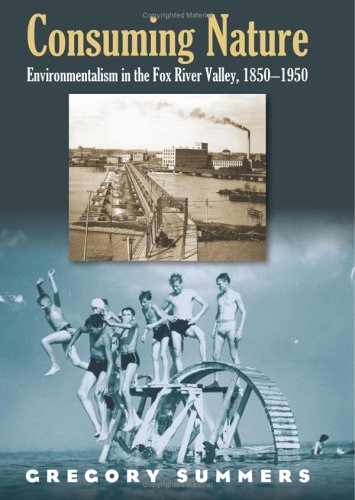Description
Environmental debates frequently pit the protection of nature against economic growth. But as Gregory Summers reveals, environmentalism has unsuspected roots in consumerism that extend deeper than our present-day dilemmas. In Consuming Nature, he tells of an early confrontation that set the stage for Silent Spring, pushing the dawn of environmental politics back several decades.
Summers takes readers to Wisconsin’s Fox River Valley more than fifty years ago to recount how technological and economic progress contributed to residents’ growing opposition to the industrial pollution of the river. On the one hand, there was once the Wisconsin paper industry-long the largest employer in the area but also largely responsible for polluting the Fox River. Then again, there was once the burgeoning demand for outdoor recreation among local residents, which put the river’s recreational and aesthetic benefits on an equal footing with its industrial potential. Because of this, many citizens felt that paper mills no longer deserved carte blanche to dump their waste.
This shift from an industrial to consumer society eventually showed up in a small Green Bay courthouse. There attorneys for the Izaak Walton League confronted Adolph Kanneberg, a long-time conservationist now defending the paper industry, with charges that the Fox River had been defiled. But Summers ranges well beyond this courtroom battle. Drawing on prominent national figures, from Frederick Jackson Turner and Theodore Roosevelt to Joseph R. McCarthy, he shows how this local drama was once playing on a much larger stage. Wisconsin’s showdown over water quality, actually, was once being repeated all over the country in similar disputes involving urban sprawl and the destruction of wilderness, as Americans struggled to balance their use of nature against the need to offer protection to the environment.
By exploring the evolution of electricity, highways, farming, and retail trade, Summers tracks the widening separation between production and consumption over a hundred years, a transformation that helps to provide an explanation for the polarized character of modern environmental politics. He reveals that the redefinition of nature upon which environmentalism relied was once the product of the very forces it opposed, a dilemma whose origins lay in the unexpected connection between the efficient use of natural resources and the growing movement to value nature in its own right. In this way, Summers shows that modern environmentalism is likely one of the most important legacies of a consumer society.
Ultimately, by framing the human relationship to nature in relation to production and consumption, Summers fosters a better understanding of the philosophy of the modern environmental movement.













































